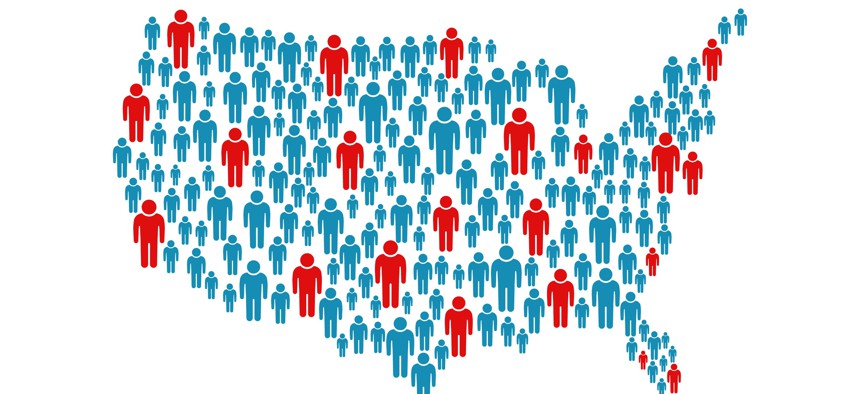Report: The 4 Biggest State Redistricting Challenges

iStock.com/DESKCUBE
Political strife, legal matters, population shifts and census data delays are issues that will make redistricting in the next year the most onerous in history, according to the Brennan Center for Justice.
Four key factors will influence redistricting in states throughout America, including political strife, legal matters, census data delays and population changes, according to a report by the left-leaning Brennan Center for Justice.
The paper comes as the U.S. Census Bureau released its 2020 data, which shows that the U.S. population grew at the second-slowest rate in history from 2010 to last year.
The 2020 census data will be used for apportionment, the process by which the federal government determines each state’s representation in the U.S. House of Representatives. The redrawing of congressional districts is done every 10 years. As a result of population shifts, six states gained a total of seven seats, while seven states lost seats.
According to the Brennan Center for Justice, which is housed at the New York University Law School, one of the key influencers to the redrawing of those maps is political changes and reforms. The report sites single-party control of redistricting as one of the most troubling issues surrounding the fair implementation of drawing congressional maps. However, single-party-controlled states have decreased and divided governments have allowed more fair reforms to be put in place for redistricting, the report highlights.
Secondly, two U.S. Supreme Court rulings are mentioned as major decisions that will affect fair redistricting: A 2013 ruling, Shelby County v. Holder, which the center says arguably weakened voter protections, and a 2019 ruling, Rucho v. Common Cause, which denied federal court challenges to partisan gerrymanders.
The third factor highlighted in the Brennan Center report was demographic and population changes across the country. Rapid population growth in the South contributing to a more diverse political and racial constituency and a decreasing population in other regions also will determine how states redistrict.
Lastly, census delays are cited as another factor that will influence redistricting in 2021-22. States will need to wait to get full census information before they can proceed with redistricting while the Covid-19 pandemic will place significant delays on most states and create uncertainty in the process.
To see more on this report click here.
Brent Woodie is an associate editor at Route Fifty.
NEXT STORY: Covid Testing Has Turned Into a Financial Windfall for Hospitals and Other Providers





